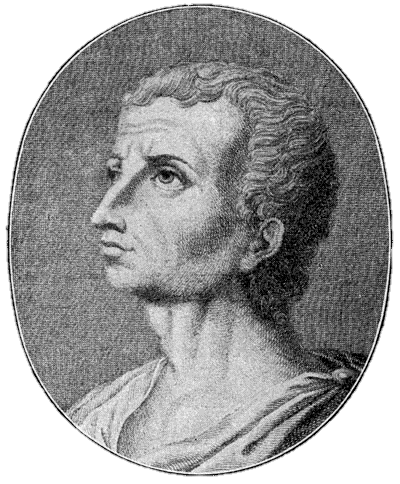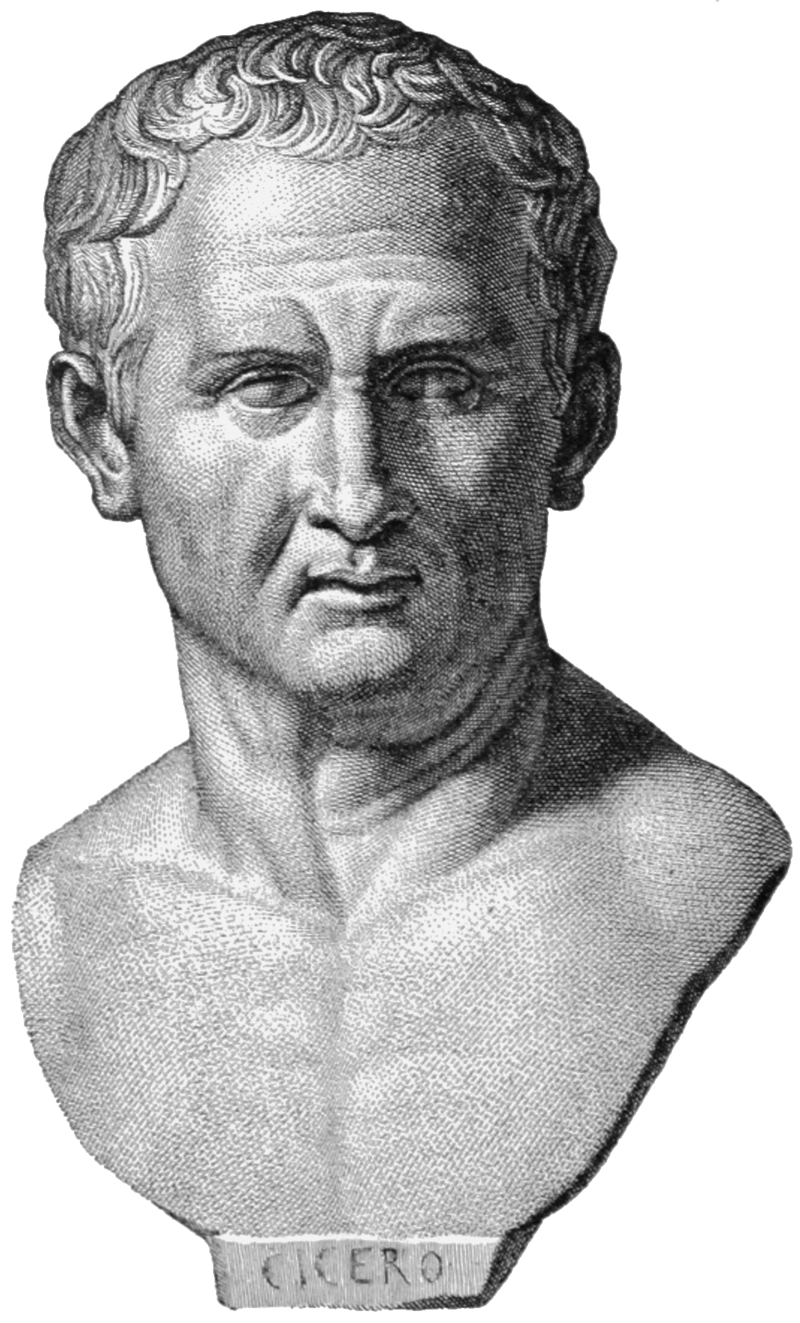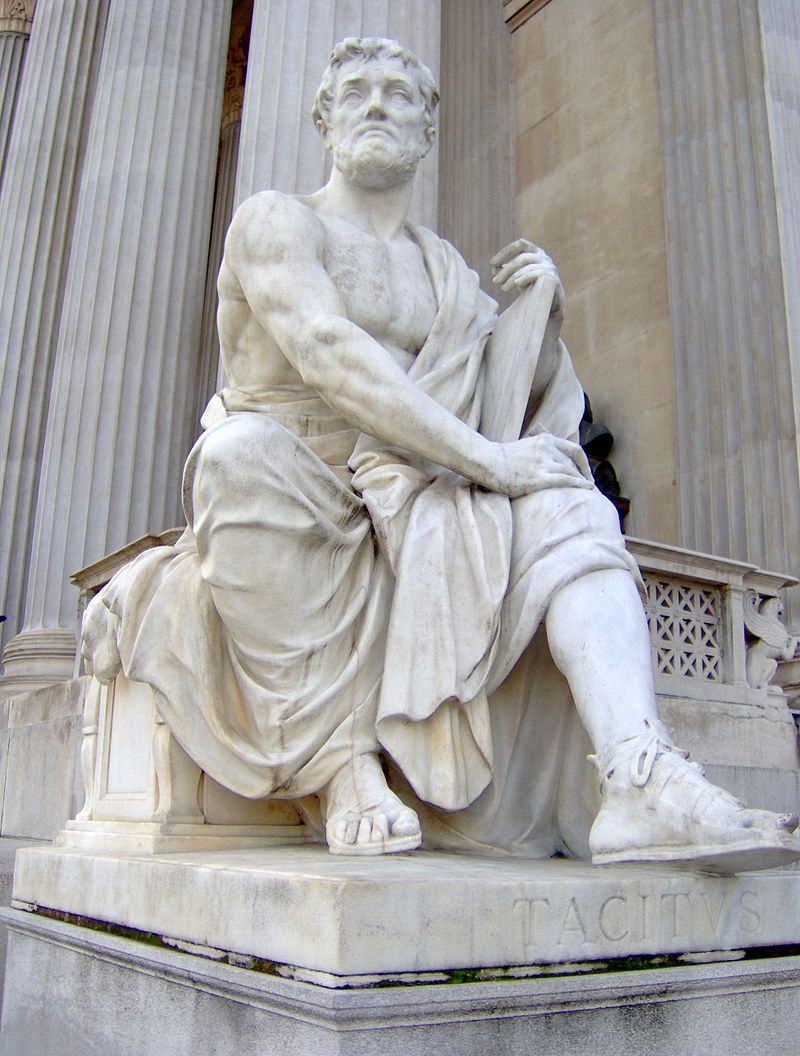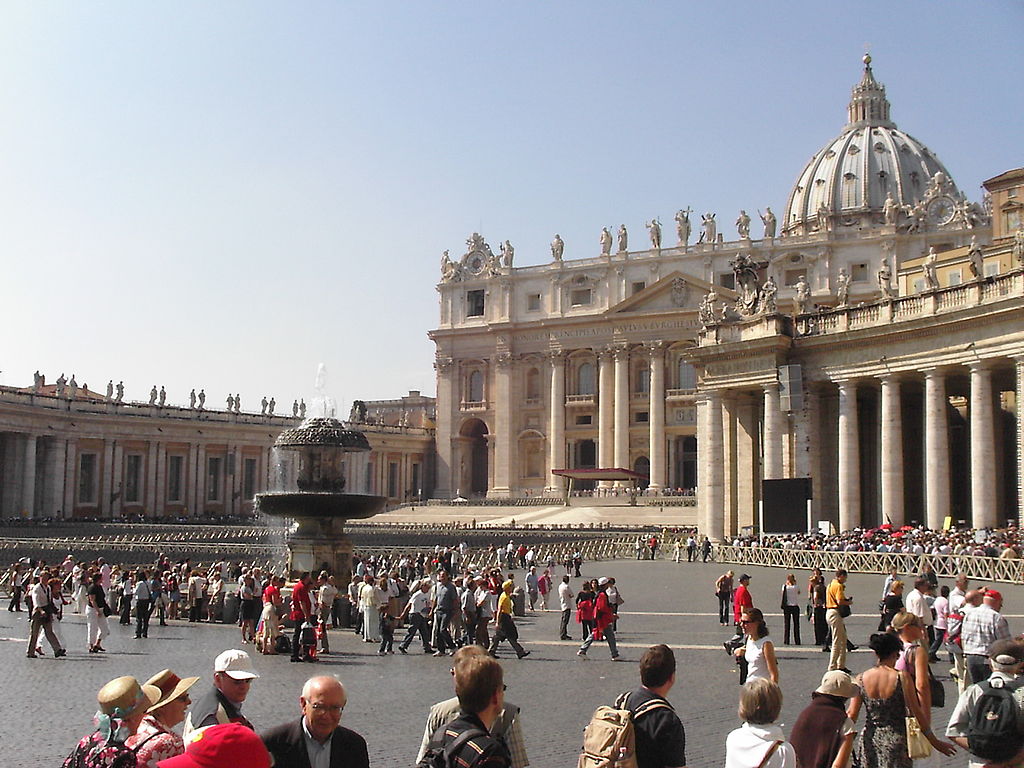The Romans
The Model for the Ages
This section takes a look at the Romans and the historians that helped shaped the path for the many areas that followed. Looking at Livy, Cicero, and Tacitus and their methods and why they are important to history. The Romans are important to history because they were the model for the different eras that followed them. The Roman Empire produced two of the major historians with Livy and the rise of the empire and Tacitus with the fall of the empire. Livy and his writings would become the groundwork for many historians to come. Rhetoric was very important because it was used to get the people of Rome to follow Caesar and the Senate. Roman rhetoric would become the standard for all governments throughout the course of history.
Before Rome
The Greeks came before the Romans and used a different method to tell their history. The method was to pass down to each generation to keep the history alive by telling stories and writing poems about important events. Herodotus, one of the fathers of history who was also known as the “gift of Hera” (Kelly, pg. 19) was a Greek historian. Herodotus was a major traveler, which performed interviews with people about events, and then turns those into poems and mighty stories to tell. An example of this would be when Herodotus talked about the Peloponnesian wars. The key difference from Greek and Roman historians is that the Greeks took the individual stories and events to make them their own, and the Romans wrote their lives and used individual stories to tell about events. This leads to Livy and how he wrote about Roman history.

Livy A Man of History
Livy was the major historian for Rome born 59 BC and died 17 AD. Livy wrote history during the monarchy and the new republic. This was important because the history changed in front of Livy’s eyes. He watched the fall of the monarchy and the rise of the republic, and he wrote about it because it was an important event. Livy’s method was to use his own life experiences, customs, culture, correspondences, and “military actions” (Kelly, pg.56). Livy did not have experiences in the militray and as a political figur. Kelly states that Livy “was a professional researcher and writer” (Kelly, pg. 57). In truth Livy was a true historian because he had not ties to any military or political connection. He was very focused on just the history. Livy told his stories and wrote so well that in the Renaissance era historians look back to his work and use his methods as the reference to future work. Kelly tells us that Petrarch “bought a copy of Livy’s history,” which he referenced in his own work called “Africa” (Kelly, pg. 132).
Early Roman History
The start of the Roman republic or Roman Empire was with the overthrow of the monarchy and with the city. Livy, who is considered one of the founding fathers of history, along with all other Romans agreed that their history started with the formation of Rome. Livy watched parts of Rome being built because the Empire The reason for this is that Romans measured time from the start of Rome and not before. The events that took place before the power of Rome was completely consolidated are recorded, but not considered the start of Roman history. It is not considered the start of their history because the build up to the full power of Rome was not in full effect at the time. Rome was under the rule of a monarchy and the republic, or as Livy called it, “new liberty” (Kelly, pg. 58) took control and started a better Rome.
The saying “all roads lead to Rome” was very important because no matter where a Roman was in the empire, Rome was always the true center in their hearts. Roman citiziens that are from the city, are the ones that held some type of office or status, but moved away from Rome and put in charge of a different area. Members of the Roman military experienced this on a regular basis with traveling to and from forts or camps for an extended time protecting the Empire. They fought and won many battles that took over lands around the Mediterranean Sea and parts of what is now Europe and the Middle East and made sure that Rome was the heart of the empire even though the city was not in the center. The reason why the Roman military and Roman citiziens traveled was because of the use of rhetoric.
Rhetoric The Art of Speech And Writing
Rhetoric is definded by Quintilian as, “Language is base on reason, antiquity, authority, and usage” (Kelly. pg. 67). The Romans were very good with rhetoric It could be said that it started with underground while the monarchy rule was in power before the rise of the republic. The Roman people were able to change the past from the rule of the monarchy and chose not to recognize it, is what the Roman leaders and people wanted. All Caesars, senate members, and historians used the power of words to influence the people. Cicero became the name and face of rhetoric to help shaped the minds of many Romans. He would be the leading offical of the senate Caesar and members of the senate would speak to the people and soldiers of the republic of Rome for many reasons. For example, when Rome wanted to expand, Caesar would give a speech to the people on why expanding into an area was important, and is words would get the people on his side and Rome. Words that were very motivational and powerful assisted Caesar and the senate to enlarge the empire.
It can be said that Roman rhetoric had a major influence on the Renaissance area after the fall of Rome. This was due to the writings of the Roman historians and the ability of public speaking. William Shakespeare, one of the most profound English writers during the Renaissance era, wrote plays that had Caesar in them. Garry Wills’ book, Rome and Rhetoric: Shakespeare’s Julius Caesar, states that “Caesar was a commanding figure in the Renaissance imagination” (Wills, pg. 25). The Renaissance held Caesar to very high standards because many of the Caesars showed great poise and leadership. The purpose in the play was to show Caesar as the God-like figure he was and whom leaders of the Renaissance emmulated.

Cicero A Master of Rhetoric
Kelly tells us the “first law” (Kelly, pg. 66) is to tell the truth no matter what. Cicero (106 BC- 43 BC) was another major Roman historian. He stated, “that an author must not dare to tell anything but the truth” (Kelly, pg. 66) because that was the job of the historian. Cicero’s defined his own method as “the witness of time, the light of truht, the life of memory, the mistress of life, the messenger of antiquity” (Kelly, pg. 66). He uses life and memory to record events and the traditions of Rome. Like Herodotus, Cicero’s truth is in what he and others have witnessed during their lives. Cicero’s major contribution was not just being a historian, but with his voice and the way he used rhetoric.
Cicero was an artist of rhetoric and gave very powerful speeches to the people. In many cases he would help Caesar get laws passed. Caesar would give great speeches to the people for many things like war, expansion, and laws. He would speak so well and emotional at times that he put fear in the people of Rome and sometimes not knowing. Frank Marsh the author of The Founding of the Roman Empire stated about Cicero, “The powerful speech of Cicero may have done something to make compliance easier for some” (Marsh, pg.71). Cicero would take the chance to put the people at ease if there was a very good reason like if he supported war, expansion, or laws. Although he preceded Livy it was his use of rhetoric that made he a great Roman figure.

Tacitus The Father of Fall
Tacitus (56 AD- 120 AD) also wrote the history he lived. He was a politician and a military officer that wrote about what he experienced on the battlefield and in the senate. Tacitus to major works, “which covered the years of his own youth down to the death of Domitian, and the Annals, which was a richly detailed account of Roman history from A.D. 14 to 68” (Kelly, pg. 61). Tacitus followed Livy later on down the road, and wrote about the later history of Rome. He was the major historian for the decline and fall of Rome. He is one of the true writers of the fall because being in the system of politics; he saw what was wrong with the senate and the problems he saw started the decline of Rome. It could be the that Tacitus recorded the fall Rome for the reason that mistakes were made and that the future civilizations would not make the same mistakes.

Link to Christianity
One road that led to Rome is the road to religion. The Vatican and the Pope are in Rome and have been for a long time. St. Peter’s Basilica that stands today replaced the Old St. Peters Basilica that stood in the same place and began construction in the early 14th century and finished in the early to mid 15th century. The Vatican can be said to be one of the safest places on earth because The Vatican is surrounded by the city of Rome its self. It is protected and was built that way for the reason that it is the center and the heart of Christianity and Rome.
Work Cited
Kelley, Donald R., The Faces of History, pg. 19-132 (London & New Haven, Yale University Press, 1988).
Marsh, Frank B., The Founding of The Roman Empire, pg. 25 (Oxford University Press, Seond Edition, 1927).
Wills, Garry., Rome and Rhetoric: Shakespeare’s Julius Caesar, pg. 71 (Yale University Press, 2011).
All figures via Wikipedia and Wikimedia Commons. (Livy), (Cicero), (Tacitus), and (The Vatican).